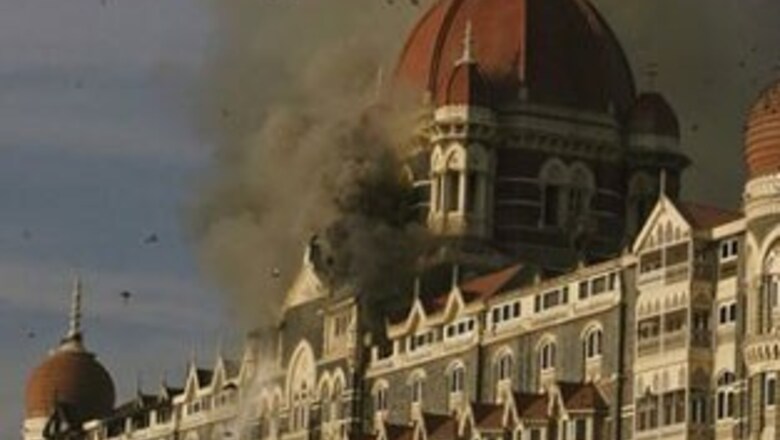
views
New Delhi: The two bills for setting up a National Investigation Agency and amending the law to deal with terrorism effectively were passed by the Lok Sabha on Wednesday, with the Government asserting that a balance of requirement of law and human rights had been ensured in these measures.
Replying to a five-hour debate on the two bills, Home Minister P Chidambaram sought to allay any apprehensions of misuse of the new tough measures to deal with terrorism, saying there adequate safeguards have been envisioned, including setting up of an independent authority of judicial experts to review cases that are probed and tried.
He emphasised that the amended Unlawful Activities Prevention ike POTA and that the new measures should not be seen from the "communal prism".
Contending that the nation could not afford to "lower its guard" as "eternal vigilance is the price of liberty," he said these measures are aimed at giving a "sense of confidence" to the people as also to the police forces that culprits could not go unpunished.
Observing that the country was facing "jihadi terrorism" wherein terrorists are not deterred as they come here to die and kill, the Home Minister acknowledged that the new laws or even the POTA or MCOCA were not a "deterrent" but "punitive" in nature.
He said the new laws were aimed at giving sufficient powers to the police forces to ensure that they can investigate and secure convictions.
Underlining that the enactment of the new laws should not be seen from the "communal prism", Chidambaram said "all laws are secular, except the personal laws. Criminal laws do not recognise communities but only those who perpetrate crimes."
He said the new laws will be "applied uniformly without any discrimination. We are not concerned about caste or creed of a terrorist, if he is a terrorist. They will be prosecuted and punished."
To ensure that there is "no misuse", he said an independent authority of judicial experts would be set up to review such cases even before prosecution is launched.
"This is an important safeguard. It is for the first time that such a measure has been introduced in a criminal law so that it is not misused," he said.
"What we have done is that we have tried to balance the requirement of law, the requirement of investigations and fair trial and human rights," Chidambaram said.
While the NIA Bill was passed by a voice vote, efforts were made by some Left members to introduce some amendments in the UPA, which were rejected.
Rejecting allegations that the Government, by bringing in the new law, has "travelled half-way" to re-introduce POTA, Chidambaram said the provisions of the new act are much different from POTA, including proving of guilt, detention and recording of confessions.
"I did not have POTA as a benchmark for this," the Minister said.
PAGE_BREAK
Apparently seeking to play down the debate over whether the new law is like POTA or not, he said "life of the nation cannot be divided between pre-POTA and post-POTA era."
The previous NDA government had felt that law like POTA was necessary but the successive government came to the conclusion not required, he said, adding these are just executive decisions which governments can take.
He said if there is a need for "revisiting" the new law, "we will revisit".
Acknowledging that bail provisions under the new law have been tightened, he, however, said the proposed Act was different from POTA.
Elaborating, he said under the POTA, courts were "obliged" to extend detention of an accused after 90 days while in the proposed Act, the courts "may" extend judging by their own wisdom.
On the proving of guilt of an accused, Chidambaram clarified that in the case of finger prints, DNA, blood samples, weapons of an accused are proved to have been recovered from the scene of crime in a terror case, the court will assume so and ave to prove otherwise.
"In a criminal case, onus (of proving guilt) is always on prosecution," Chidambaram said.
Even the maximum period of detention was "up to" 180 days and an accused could be released on bail earlier depending on the courts which have powers to decide.
On concerns that the NIA could trample upon the rights of the states, Chidambaram said the proposed investigation agency would "invariably" associate the local police in any probe related to terror.
However, it could not be made mandatory as in some cases, local police is suspected of "cover-up" of a crime, he said.
The NIA would investigate offences under eight laws, including the Atomic Energy Act and The Anti-Hijacking Act.
When the state government sends the information to the Central government, the Centre within 15 days would decide, having regard to the gravity of the offence, whether it is fit to be taken up by the NIA.
Under the NIA, special courts would be set up for which judges would be appointed in consultation with the Chief Justice of High Courts and cases would be heard on day-to-day basis.
Appeals would lie with the division bench of the Highould be disposed of in three months under the NIA, he said.
"The nation expects the laws to be passed so that there is a sense of confidence" that the Government is active in dealing with terrorism, the Home Minister said, "We are at it 24x7... What we have done is more than adequate".
Seeking the support of all parties to the new measures, he said Parliament needed to demonstrate unity of purpose and action in the face of the current situation.



















Comments
0 comment